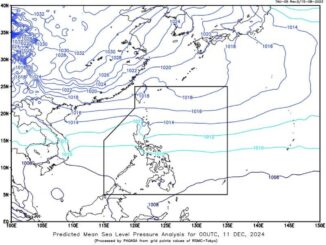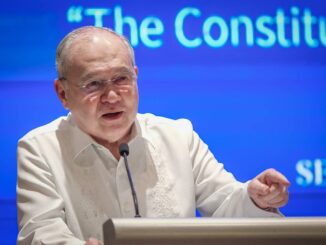
MASANTOL, Pampanga — The Public Utility Vehicle Modernization Program (PUVMP) will push through as President Ferdinand Marcos Jr. on Wednesday rejected calls from senators to suspend its implementation.
Speaking to reporters, Marcos said the PUVMP was actually favored by the majority of jeepney drivers and operators, and suspending it would be allowing the minority to dictate the fate of the entire public transport system.
“I disagree with them because they are saying it was rushed. This has been postponed seven times,” the President said during a chance interview.
Modern and traditional jeepneys are seen in a terminal in Escoda Street in Manila on Sunday, August 4, 2024. PHOTOS BY MIKE ALQUINTO
“The modernization has been postponed for seven times. And those that have been objecting or been crying out and asking for suspension are in the minority,” he added.
Marcos said the government has already reached 80 percent consolidation rate, which warrants pushing through with the program
“Eighty percent have already consolidated. So what do we do? The 20 percent will decide the fate of 100 percent? So let us listen to the majority, and the majority says we must continue. So that’s what we will do,” he said.
The President issued the statement after 22 senators filed a resolution calling for the temporary suspension of the PUVMP, saying it was not well planned and that its implementation was rushed.
Senate Resolution 1096 highlighted the fears of drivers and transport operators to be directly affected by the program, particularly issues related to consolidation into cooperatives
Started in 2017, the PUVMP aims to replace jeepneys with vehicles that have at least a Euro 4-compliant engine to lessen pollution. It also aims to replace units that are no longer considered roadworthy.
A modern jeepney unit costs over P2 million, an amount that even state-run banks LandBank and Development Bank of the Philippines said was too expensive for individual PUV drivers and operators.
The consolidation of individual PUV franchises into cooperatives or corporations is the initial stage of the modernization program.
Initially, the LTFRB (Land Transportation Franchising and Regulatory Board) had said that PUVs that did not consolidate after the April 30 deadline would be deemed illegal.
However, LTFRB has allowed unconsolidated jeepneys and UV Express vehicles to continue operating in over 2,500 routes with a low number of consolidations.
According to data from the Department of Transportation, the consolidation rate under the program already reached 83.38 percent, with the Office of Transport Cooperatives accrediting 1,781 cooperatives with 262,870 members.
The government is now completing the Local Public Transportation Route Plan or route rationalization component of the PUVMP. This will determine the number of PUV units to serve a particular route.
Senate President Francis Escudero, however, continued to question the thoroughness and preparedness of the program.
His remark came after a “unity walk” by operators and drivers who have complied with the program.
Escudero said the suspension of the program does not mean that the hard work of those who previously complied with the program would be withdrawn or ignored. It is to give enough time to those who have not been able to comply while the government to adjust to the modernization program.
Escudero pointed out that the government has not yet fully spent the funds for the program. From 2018 to 2024, the Department of Transportation admitted that only 50 percent of its budget for the program had been spent, he added.
Apart from this, the government subsidy provided by the government is not enough, he said.





Be the first to comment